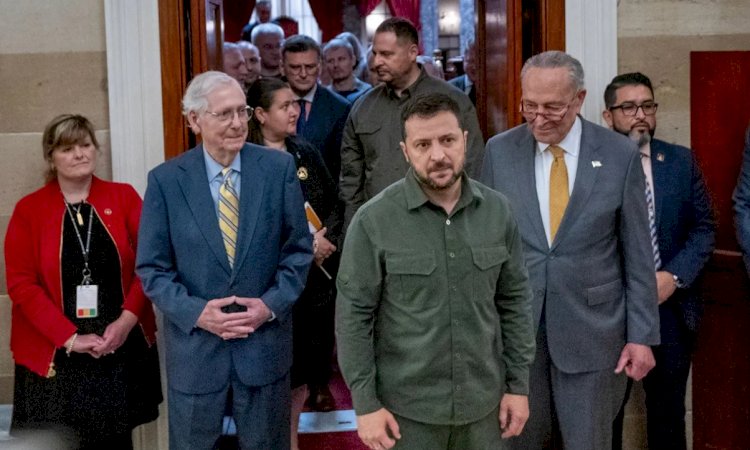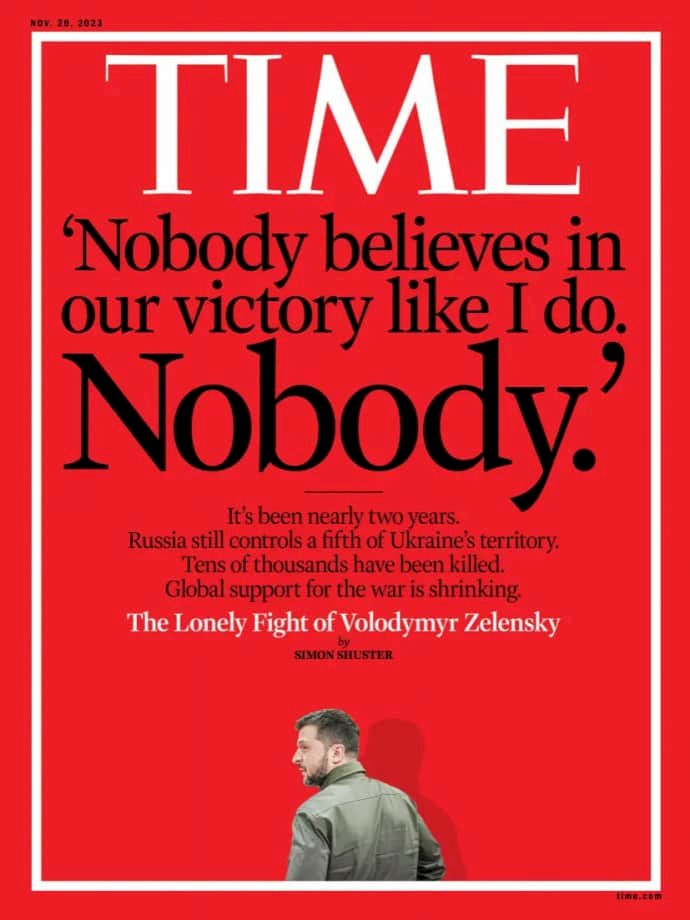‘Nobody Believes in Our Victory Like I Do.’ Inside Volodymyr Zelensky’s Struggle to Keep Ukraine in the Fight
Inside Volodymyr Zelensky’s Struggle to Keep Ukraine in the Fight

‘Nobody Believes in Our Victory Like I Do.’ Inside Volodymyr Zelensky’s Struggle to Keep Ukraine in the Fight
Volodymyr Zelensky was running late.
The invitation to his speech at the National Archives in Washington had gone out to several hundred guests, including congressional leaders and top officials from the Biden Administration. Billed as the main event of his visit in late September, it would give him a chance to inspire U.S. support against Russia with the kind of oratory the world has come to expect from Ukraine’s wartime President. It did not go as planned.
That afternoon, Zelensky’s meetings at the White House and the Pentagon delayed him by more than an hour, and when he finally arrived to begin his speech at 6:41 p.m., he looked distant and agitated. He relied on his wife, First Lady Olena Zelenska, to carry his message of resilience on the stage beside him, while his own delivery felt stilted, as though he wanted to get it over with. At one point, while handing out medals after the speech, he urged the organizer to hurry things along.
The reason, he later said, was the exhaustion he felt that night, not only from the demands of leadership during the war but also the persistent need to convince his allies that, with their help, Ukraine can win. “Nobody believes in our victory like I do. Nobody,” Zelensky told TIME in an interview after his trip. Instilling that belief in his allies, he said, “takes all your power, your energy. You understand? It takes so much of everything.”

It is only getting harder. Twenty months into the war, about a fifth of Ukraine’s territory remains under Russian occupation. Tens of thousands of soldiers and civilians have been killed, and Zelensky can feel during his travels that global interest in the war has slackened. So has the level of international support. “The scariest thing is that part of the world got used to the war in Ukraine,” he says. “Exhaustion with the war rolls along like a wave. You see it in the United States, in Europe. And we see that as soon as they start to get a little tired, it becomes like a show to them: ‘I can’t watch this rerun for the 10th time.’”
The usual sparkle of his optimism, his sense of humor, his tendency to liven up a meeting in the war room with a bit of banter or a bawdy joke, none of that has survived into the second year of all-out war. “Now he walks in, gets the updates, gives the orders, and walks out,” says one longtime member of his team. Another tells me that, most of all, Zelensky feels betrayed by his Western allies. They have left him without the means to win the war, only the means to survive it.
Zelensky’s stubbornness, some of his aides say, has hurt their team’s efforts to come up with a new strategy, a new message. As they have debated the future of the war, one issue has remained taboo: the possibility of negotiating a peace deal with the Russians. Judging by recent surveys, most Ukrainians would reject such a move, especially if it entailed the loss of any occupied territory.








































